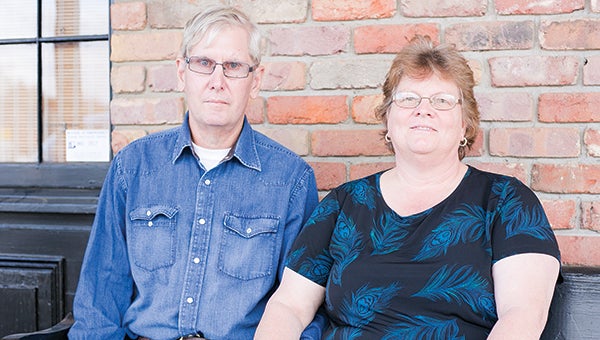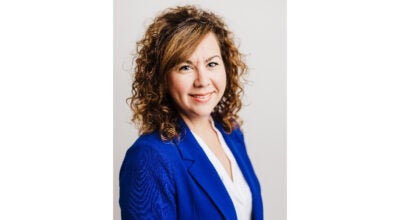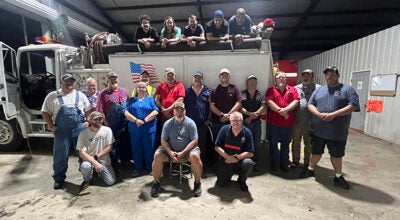Searching for a cure
Published 7:42 pm Saturday, January 23, 2016
Just 4,500 people in the United States have been diagnosed with progressive supranuclear palsy. The disease, known as PSP, is a progressive neurological disorder that affects the tau protein function in the brain.
PSP inhibits a person’s cells that control walking, balance, mobility, vision, speech, swallowing and behavior. The condition falls into the category of neurodegenerative diseases, like Alzheimer’s, Parkinson’s and Lou Gehrig’s.
Kenneth Fugler, 61, of Brookhaven received his diagnoses of progressive supranuclear palsy in May of 2014. The diagnosis came after more than two years of uncharacterized symptoms and many visits to the doctor.
“I had a dozen different doctors give me a dozen different wrong diagnoses,” Fugler said. “It is very typical with this disease because the symptoms mimic so many other diseases.”
The symptoms began after having surgery on a torn rotator cuff and progressively got worse, Fugler said.
“There is a myriad of symptoms for this,” he said. “It’s a very personal disease, in that not everybody has the same symptoms. My symptoms started out with a raspy, hoarse voice and coughing. Then I started drooling. My right arm started getting stiff and uncoordinated. I lost coordination in my left leg and my neck, and for the past few weeks my left arm has been sore. You get general weakness, where you can’t keep up and do things like you normally do.”
When the symptoms began, Fugler went to his primary care doctor in Baton Rouge, said Gayle Fugler, Kenneth’s wife. The primary care doctor referred him to a gastroenterologist, who diagnosed the symptoms as acid reflux, she said.
“After that diagnoses, and when I started drooling and all, they said, ‘You had a stroke,’” Kenneth said. “Then they referred me to a neurologist. The neurologist said, ‘You have Parkinson’s.’”
According to the CurePSP Foundation, an organization committed to finding a cure for PSP and related brain diseases, for every person with a diagnosis of PSP, there are three with PSP that could be diagnosed if their doctor suspected it and performed the appropriate examination.
Kenneth said when he was diagnosed with Parkinson’s the neurologist put him on a light dosage of sinemet, a medication that acts as an artificial dopamine. Parkinson’s is caused by the deficiency of dopamine and tau protein in the brain, he said.
“When he was first diagnosed as having Parkinson’s, I was OK with that, thinking that we had possibly many years together and that he would be OK, and able to continue life as normal,” Gayle said. “But his symptoms were not improving with the sinemet, and he was losing weight fast. He lost nearly 40 pounds within four to five months and was getting worse. I knew something else seriously must be wrong.”
While the neurologist in Baton Rouge was not making progress on Kenneth’s symptoms, the Fuglers were attending support groups. At a Parkinson’s support group in Baton Rouge, Kenneth and Gayle met Dr. Georgia Lea, a neurologist at Ochsner’s in New Orleans.
“I liked what Dr. Lea said, so I asked Gayle if we could go see her,” Kenneth said.
On his first visit to see Lea, she quadrupled the amount of sinemet Kenneth was taking for three months, he said.
“One way they find out if its PSP is to differentiate between PSP and Parkinson’s,” Kenneth said.
When he returned and his symptoms had not improved, Lea confirmed his diagnosis to be PSP.
“When he received the correct diagnosis of PSP, May 29, 2014, my heart just sank deep within me,” Gayle said. “He had to quit his dream job at the Baton Rouge Zoo and be put on total disability.”
Kenneth received a disability check one month after being diagnosed with PSP, Gayle said.
“It was the best job I ever had,” Kenneth said. “I loved my job, but I couldn’t keep it.”
Kenneth’s treatment mostly revolved around managing his symptoms, until October 2015 when he was one of 32 patients who were enrolled in a clinical trial conducted by Dr. Diana Kerwin in Dallas, Gayle said.
According to CurePSP, the trial with evaluate the safety and tolerability of infusions of C2N-8E12, an anti-tau antibody, in PSP patients.
“The trial is a blind study,” Gayle said. “Three out of four patients actually get the agent. One out of four gets a placebo.”
They will return to Dallas for the sixth time in February, Gayle said. This will be the last trip in this particular phase of the study.
“There’s two phases,” Kenneth said. “The tolerance phase — that’s what I’m finishing up now. The next one is going to be the therapeutic phase.”
The second phase of the trial should start this summer, Gayle said. Kenneth will receive monthly infusions, which will result in trips to Dallas every time.
“What’s so great about the trial is that they are paying for everything,” Gayle said.
The Fuglers said they hope that by raising awareness of PSP more research can be conducted to find a cure.
Kenneth said people need to be aware of this disease because too many patients are getting misdiagnosed.
“There was a billionaire from Texas who died with PSP, and since then his family donated millions of dollars to research, and I think that is how all of this research is getting funded,” Gayle said. “Everything costs money, and that’s another reason why we want to raise awareness. So people will donate.”
Kenneth said that the reason drug companies are reserving money for the PSP study is because PSP is the only neurodegenerative disease that is solely affected by the tau protein.
“There is always another disease that the tau protein affects,” Kenneth said. “It’s easier for them to study just PSP and the tau protein. If they can cure that, they’ve got the rest half-way beat.”
Gayle said that Kenneth does not only want to help himself by raising awareness, but other people too. A cure for PSP would not only affect him, but also a lot of other people with neurodegenerative diseases, she said.






